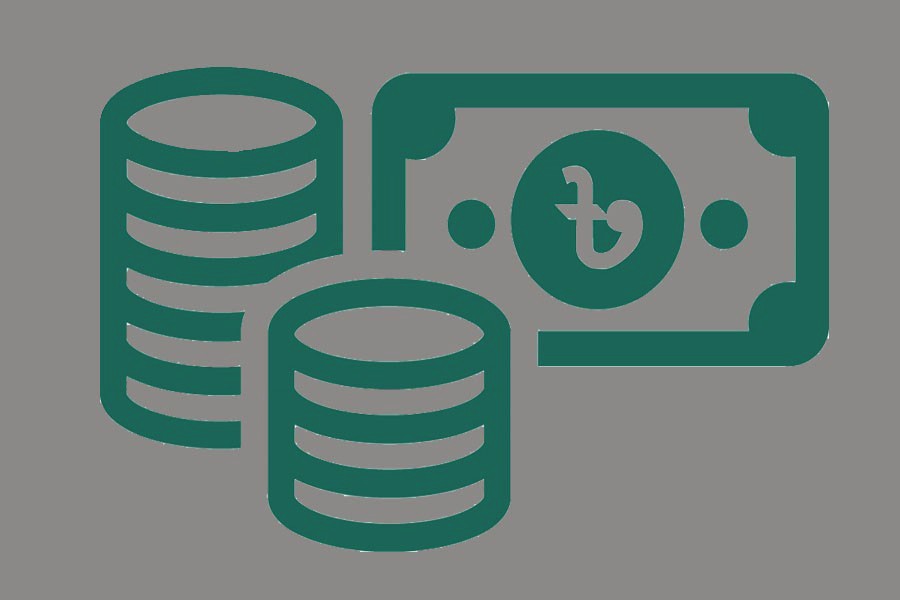The government's higher borrowing from both the central bank and commercial banks is set to pick up mainly due to revenue shortfall in recent months, officials and bankers said.
The previous borrowing, which was availed by the government to meet extra expenses for holding the December 30 national polls, is being adjusted, they said.
The authorities have already set the net bank borrowing target at more than Tk 23 billion for January to finance budget deficit, due in part to the general election, according to the central bank officials.
It may take up to Tk 132 billion as gross borrowing from the banking system in January 2019 by issuing treasury bills (T-bills) and bonds, according to the latest auction calendar, issued by the Bangladesh Bank (BB) earlier.
The government's net bank borrowing will reach Tk 23. 58 billion by the end of this month, after deducting Tk 108.42 billion as maturity amount of the government securities from the gross borrowing amount, the officials added.
Besides, Tk 20 billion was borrowed through issuing short-term 14-day T-bills on January 10, which will be cleared on January 27.
"There will be no effect on the overall net borrowing for the month of January," a senior BB official told the FE on Wednesday.
The government's overall net bank borrowing increased by over Tk 2.62 billion in a week to nearly Tk 51.10 billion as on January 03 from Tk 38.48 billion as on December 27 last, according to the BB's confidential report.
"Actually, the government is now in a borrowing spree to meet extra expenses following lower revenue collection and the adjustment of post-poll expenses," the central banker explained.
A top banker agreed the government borrowing will keep rising in near future.
Talking to the FE, Syed Mahbubur Rahman, chairman of the Association of Bankers, Bangladesh (ABB), said the existing upward trend in higher bank borrowing by the government may continue in the coming months as the implementation of annual development programme (ADP) will pick up speed.
Normally, the implementation rate of ADP goes up in the second half of each fiscal year, he added.
"Besides, revenue shortfall will force the government to borrow more from the banking system to meet the budget deficit partly," the senior banker explained.
Meanwhile, the government has used Tk 39.01 billion as on January 13 borrowed under ways and means advances (WMAs) facility from the central bank to meet its budgetary expenses.
The authorities are now empowered to borrow up to Tk 40 billion from the central bank under the facility to meet its day-to-day expenditures without issuing any securities.
Besides, the government is entitled to borrow a maximum of Tk 40 billion under overdraft (OD) drawing facility from the central bank on the same ground.
"But the government has not availed such a facility from the BB during the period," the central banker noted.
The official also said that the government had been forced to borrow more from the banking system as revenue collection during the first five months of the current fiscal year (FY) was lower than the target.
The National Board of Revenue (NBR) had faced nearly Tk 220 billion shortfall against its target in the July-November period of the FY 19, according to the official figures.
The ministry of finance had set a bank borrowing target of Tk 420.29 billion for fiscal year 2018-19 to partly finance the budget deficit.
Under the proposed bank borrowing, the government will borrow Tk 239.65 billion by issuing long-term bonds, while the remaining Tk 180.64 billion through T-bills.
Currently, four T-bills are being transacted through auctions to adjust the government's borrowing from the banking system. The T-bills have 14-day, 91-day, 182-day and 364-day maturity periods.
Also, five government bonds with tenures of two, five, 10, 15 and 20 years respectively are traded on the market.
siddique.islam@gmail.com


